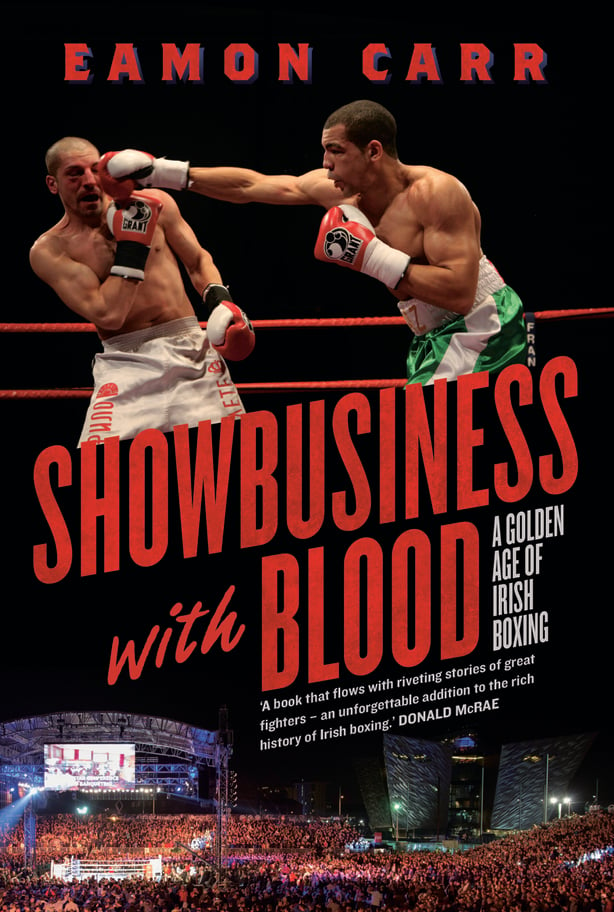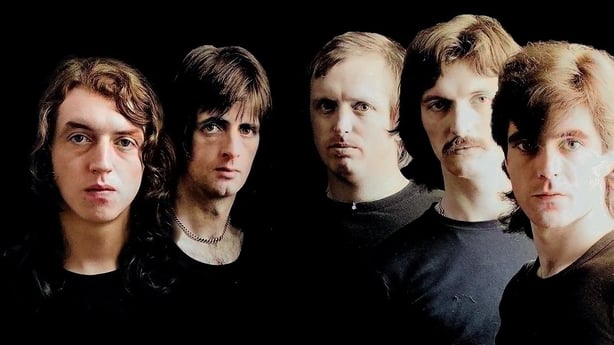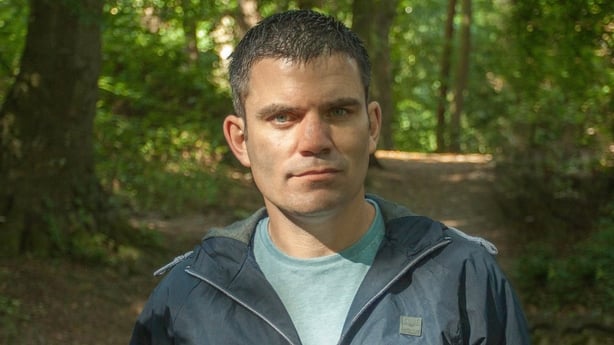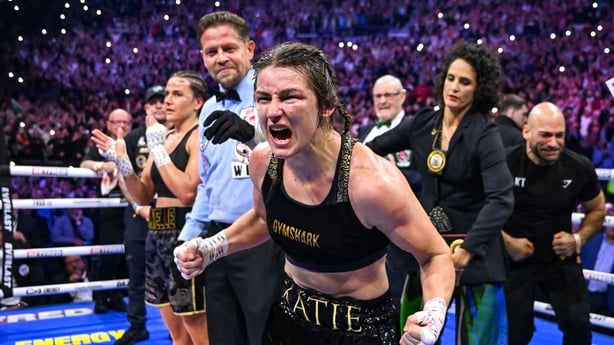It’s been quite a year for Eamon Carr, drummer of legendary Irish band Horslips. John Byrne talks to him about his passion for boxing and his recently published book, Showbusiness With Blood.
Eamon Carr is a man of many talents. Primarily known for paradiddling down the decades with the mighty Horslips, he’s had books of poetry published, and worked as a journalist for many years.
He’s also apparently got a good eye for the odd antique, and is rumoured to own a Beatle wig. He's more Renaissance Man than Guru Weirdbrain these days. Like a good wine, he's ageing well.
2023 saw him reach a landmark birthday as he turned 75, he sadly lost fellow Horslips member Johnny Fean, but the year ended on a high note with the publication of Showbusiness with Blood, his insightful, ringside account of the world’s greatest boxers, from Steve Collins to Mike Tyson to Tyson Fury and Katie Taylor.

It’s one of those publications that has popped up on Best of Year lists, and even though I can’t spell the word ‘bocksing’ I thought it was a great read. Intrigued, I chatted to Eamon about the book and his passion for the ring.
John Byrne: Rock ‘n’ roll and boxing are pretty disparate worlds. How did your fondness for fighting begin?
Eamon Carr: I had a love of boxing when I was a child – but that was slightly forced upon me, really. My dad was in the gym and all that sort of stuff.
But then I went to boarding school, then I got into music, and then I wasn’t going to get hit in the face. Well, I was – but that’s a different story.
Ultimately, I was denying a little part of me.
I used to watch fights on the TV, though I wasn’t an avid follower. But when I started as a journalist and began to get the opportunity to go to fights, to get to ringside - and then suddenly the doors were open. I could actually go and talk to them.
Of course, it’s a different experience actually being there, ringside.
Completely different. Completely different. I mean, the physicality of actually seeing someone getting punched. And especially in a pro fight – not so much in the amateur, though that can be physical too.

When guys get to the late championship rounds, and they’re hitting hard and the gloves are not soft. They’re really tough, leather gloves. Guys are cutting up, they’re bruising . . . if you’re near ringside, you can get covered in spit, sweat and indeed blood. As I have been.
And I would tend to dress accordingly. Forget the white shirt tonight! Go black. Seriously! But the physicality of what they’re doing, and the courage these lads showed.
They’re getting up the steps and going into a ring, basically taking on someone who’s going to try and knock your head off. So they can finish early and go home early.
So is it the bravery of the fighters that attracts you?
I sort of saw it still through a child’s eyes almost. Two men – by and large – who are fighting each other. They’re trying to unlock a puzzle. How to hit the other person before they get hit. That was an attraction. I can’t deny that.
People would have dinner parties and they’d say: ‘I didn’t know you were into that!’ And all that sort of stuff. There was a downside. The touch of a leper, or something.
But as it turns out, but when I saw they were putting themselves through extreme sport, showing an astonishing mental ability to somehow try and figure stuff out tactically. And then there's the physicality, the courage and the resilience.

And certain fellas – Bernard Dunne at the time became European champion. It was fantastic! On his way to become world champion. But he gets knocked-out in the first round by Kiko Martinez. Destroyed before even half the audience had taken their seats.
And he came out, with his hands up, went away, re-grouped and got a new styrength and condition coach – all that sort of stuff. He came back and after three title fights he got a world title fight.
And the reason he got it was because they reckoned he was a pushover. But he wasn’t. In fact, he showed that he had it in him and he became a world champion. And there loads of those kind of stories – and they were the stories I wanted to tell.
I’d imagine it was a case of what to leave out rather than what to put in the book?
As it happened, I didn’t know what I was doing! I thought I could just sit down and write. So I wrote about 129,000 words, and when Anthony Farrell [of Liliput Press, the book’s publishers] went through it, he said: ‘It’s a big net.’ And I went, right, yeah, yeah, yeah. He then said, ‘I think we’ll have to cut this down.’

So I spent three months hacking away at it and got it down to about 123,000. I was leaving stuff on the floor that was half-decent. And then the editors came in and we really started working on it.
As in rock ‘n’ roll, it resulted in all killer, no filler. It’s tight. It’s lean.
Being a musician, you probably understood the process?
Absolutely. It’s the very same thing. It’s a long process. It’s okay writing a poem, or writing a 4 or 500-word article, but setting out to do something like this, on this scale. I thought I might do it in six months and it took me nine.
Then the editing took another three months. It’s a long process.
As well as music and your time as a journalist, you’ve also had books of poetry published. Putting together a book about boxing is a much more mainstream move for you . . .
I think there’s more to it than that. There’s a lot going on here. It isn’t just about boxing.
You have to be smart. Obviously, not all boxers are business smart, so it is just like rock ‘n’ roll in that sense. There are agents, there are managers, there’s the art of the deal . . . and you can only do your best.
And if you don’t get the breaks . . .
Showbusiness with Blood by Eamon Carr is published by Liliput Press


